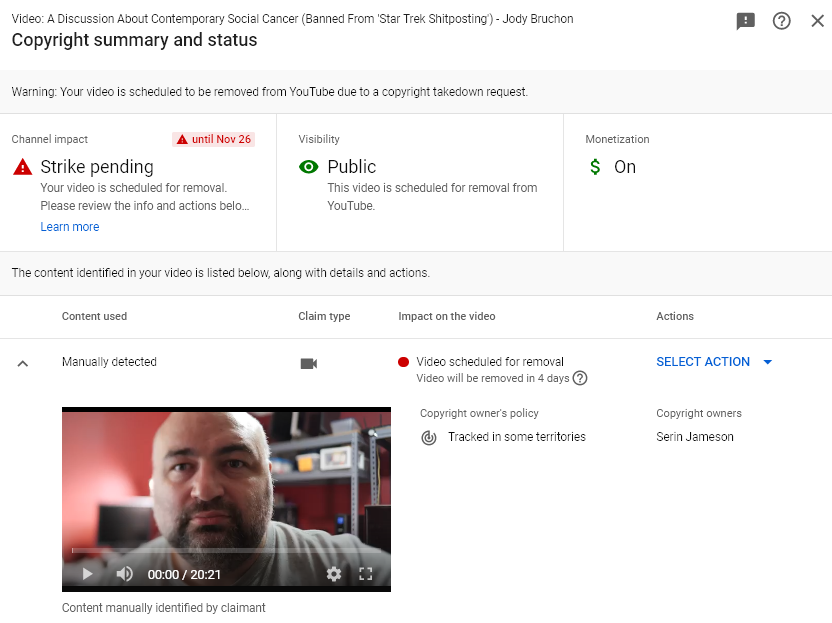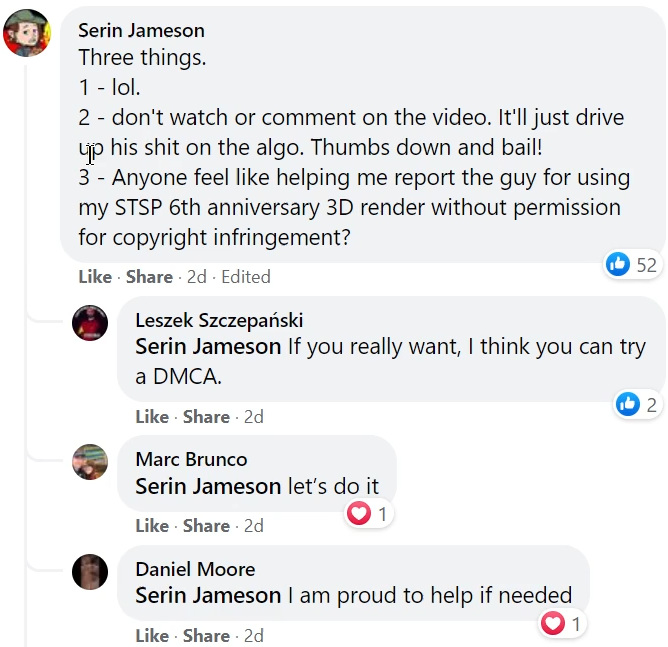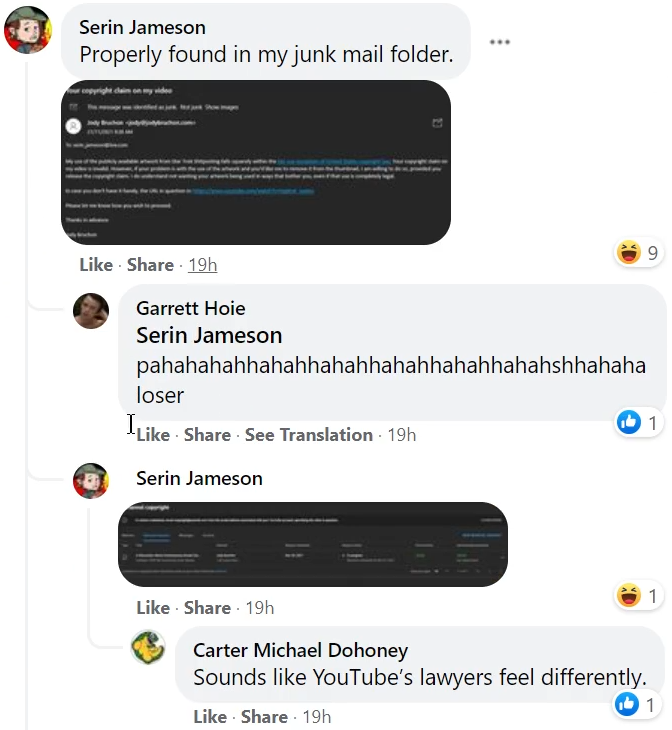Updated 2021-11-26 to change Serin’s pronouns to be ambiguous (and thus more degrading) based on a comment whining about them. Be sure to read the comment for a great example of “tolerance.”
Serin Jameson is the founder and artist for a Facebook group called “Star Trek Shitposting.” I discussed the group and its toxicity in an unedited, rambling video six weeks prior to this post. It took that long for someone in the group to notice the video. What followed was a 109,000-person Facebook group descending upon my video to attempt to make me feel bad for mocking them, with literally thousands of comments being posted, many of which proved that the loudest and most accepted people in that group are indeed horribly toxic and evil people.
Sadly for them, I don’t care what they think about me, and their insults either resulted in pity or amusement on my end.
However, Serin Jameson is the lone figure who stands above all others for taking a good old-fashioned pile of internet banter way too far, jumping straight into the realm of brazenly breaking the law.

To understand the problem, one must first understand the concept of “fair use” within United States copyright law. In general, copyright law grants the rightsholders of a work the exclusive right to distribute their work for a limited period of time to encourage the ongoing creation of new works. (There are several issues with existing copyright law, including the “limited” term being insanely long, but that’s a conversation for another post.) U.S. copyright law explicitly carves out exceptions to this exclusive right, and the only one that’s important for most people is what is known as the Fair Use Doctrine. This portion of the law lays out four factors by which a fair use exception is judged. A fairly comprehensive explanation of the “four factor test” is available from the University of Texas. I won’t go over too many of the details here, but suffice it to say that my use of Serin Jameson’s artwork for the purpose of criticism and commentary combined with my heavy transformative use of the work place my use squarely within the bounds of the Fair Use Doctrine.

Serin Jameson used (via a YouTube form) a provision of the Digital Millennium Copyright Act (DMCA) that allows rightsholders to send a DMCA takedown notice to an online service provider to notify them of posts that infringe on their copyright and have them taken down. My work constitutes plainly obvious fair use, so this action was inappropriate, and Serin Jameson knew this to be the case, and has thus stomped into Section 512(f) of the DMCA, which states (irrelevant portions excluded):
Misrepresentations.
Any person who knowingly materially misrepresents under this section…that material or activity is infringing…shall be liable for any damages, including costs and attorneys’ fees, incurred by the alleged infringer.
Serin Jameson is invoking U.S. law regarding material stored on U.S. company servers by a U.S. citizen, jurisdiction here is clearly and exclusively within the United States, despite Serin Jameson apparently being in Australia. United States case law requires that Serin Jameson perform a fair use analysis of the work in question prior to filing a DMCA takedown request (Lenz v. Universal Music Corp., 801 F.3d 1126 (9th Cir. 2015)). Failure to do so violates the declaration of the good faith required by the DMCA in any DMCA takedown request.
Based on the publicly available communications of Serin Jameson, my email notifying him it of his its failure to conduct a fair use analysis, and his its public confirmation of receipt of that message, Serin Jameson fits all of the requirements under the DMCA to be held legally liable for filing a false DMCA takedown against my content. I have already sent a counter-notification to YouTube.
I am posting this as both a lesson and a warning: you should not abuse the law to silence people you don’t like.
Also, for the curious: yes, United States judgments are enforceable in Australia. Serin Jameson could find itself on the receiving end of some Hauge secret sauce.
Finally, as they say on the internet, I’ve brought receipts.



